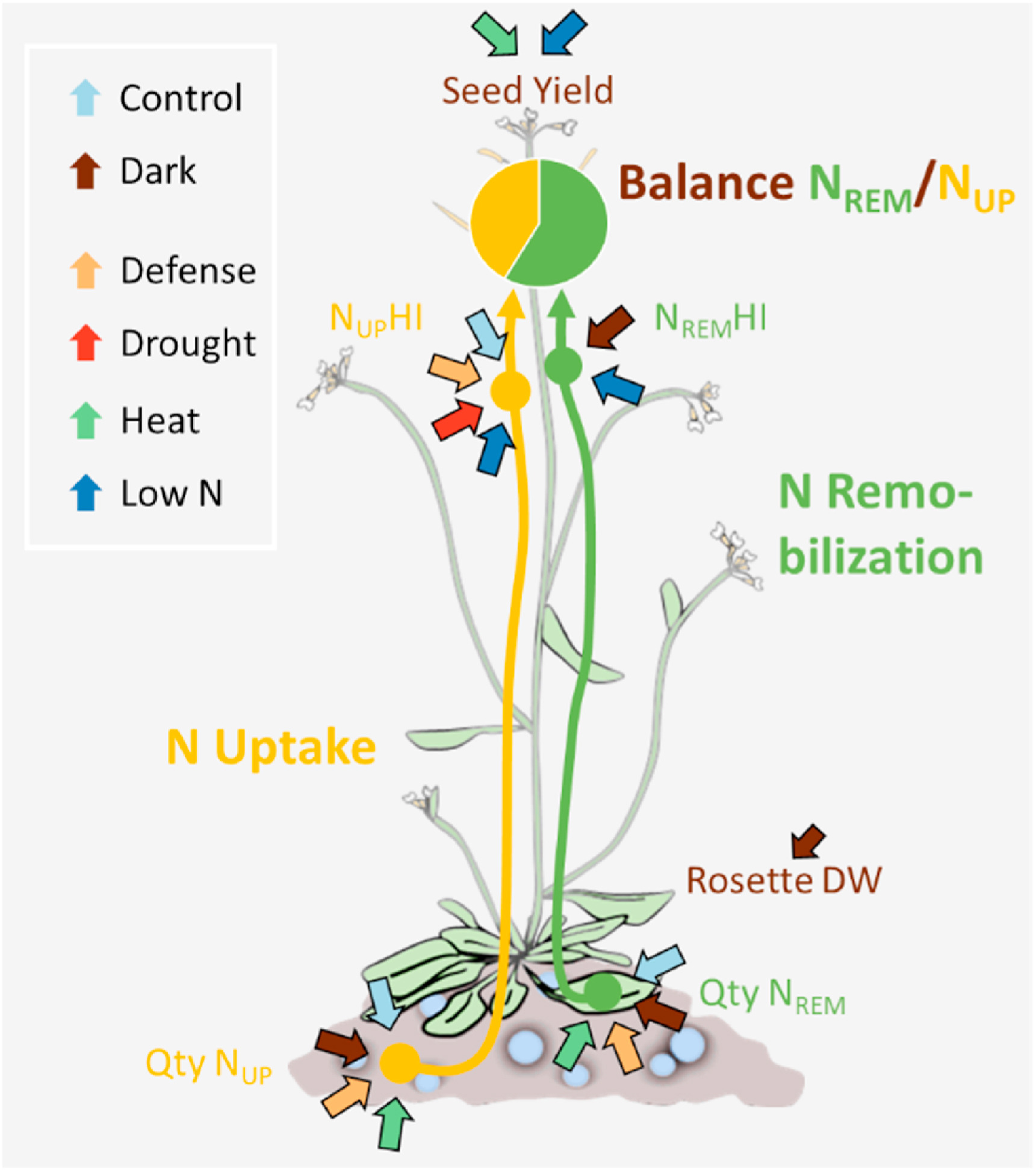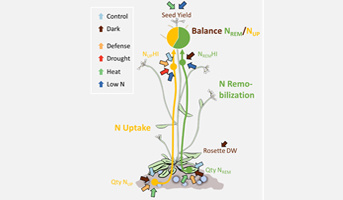Modulation of plant nitrogen remobilization and postflowering nitrogen uptake under environmental stresses
Plants are sessile organisms that take up nitrogen (N) from the soil for growth and development. At the postflowering stage, N that plants require for seed growth and filling derives from either root uptake or shoot remobilization. The balance between N uptake and N remobilization determines the final carbon (C) and N composition of the seed. The N uptake and N remobilization mechanisms are regulated by endogenous signals, including hormones, developmental stage, and carbon/nitrogen ratio, and by environmental factors. The cellular responses to the environment are relatively well known.
However, the effects of environmental stresses on the balance between N uptake and N remobilization are still poorly understood. Thus, this study aims to analyze the impact of environmental stresses (drought, heat, darkness, triggered defense, and low nitrate) on N fluxes within plants during seed filling. Using publicly available Arabidopsis transcriptome data, expression of several marker genes involved in N assimilation, transport, and recycling was analyzed in relation to stress. Results showed that the responses of genes encoding inorganic N transporters, N assimilation, and N recycling are mainly regulated by N limitation, the genes encoding housekeeping proteases are principally sensitive to C limitation, and the response of genes involved in the transport of organic N is controlled by both C and N limitations. In addition, 15N data were used to examine the effects of severe environmental stresses on N remobilization and N uptake, and a schematic representation of the major factors that regulate the balance between N remobilization and N uptake under the stress and control conditions was provided.

Back

Full size
Legend:
Representation of main NUE parameters that drive the balance between N remobilization and N uptake in Arabidopsis in the six environments.
Colored arrows showed the significant factors affecting the balance in the growth conditions. Results of path analysis for plants growing under control (A), dark (B), defense (C), drought (D), heat, and (E) low N (F) conditions.
Qty NUP and Qty NREM: amount of nitrogen in the plant from uptake and remobilization respectively.
NUPHI and NREMHI: proportion of nitrogen, respectively absorbed and remobilized, that is allocated to seed filling.
Rosette DW: weight of the dry rosette.
Reference:
Marmagne A, Masclaux-Daubresse C, Chardon F,
Modulation of plant nitrogen remobilization and postflowering nitrogen uptake under environmental stresses
https://doi.org/10.1016/j.jplph.2022.153781
The SATURNE team:
"Senescence, Autophagy, Nutrient Recycling and Nitrogen Use Efficiency"